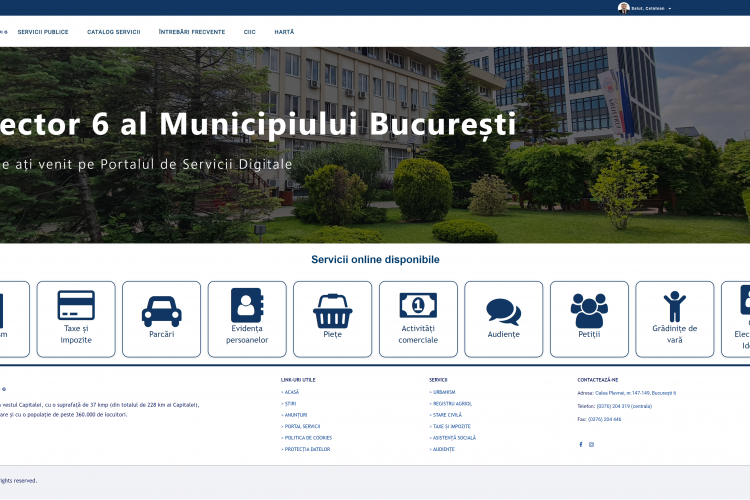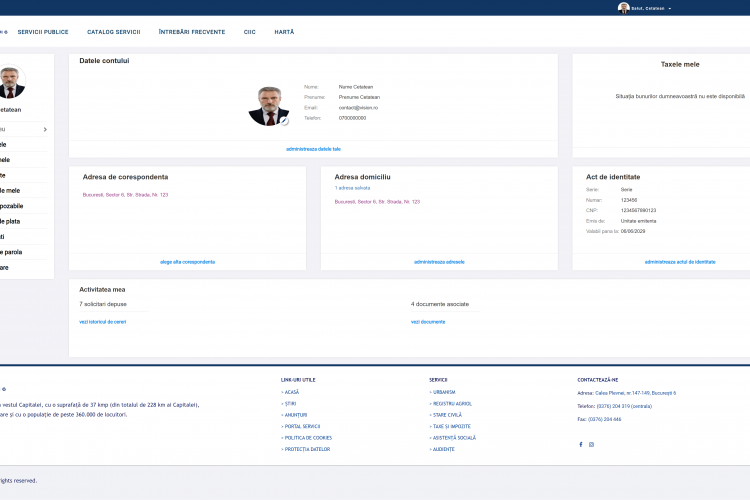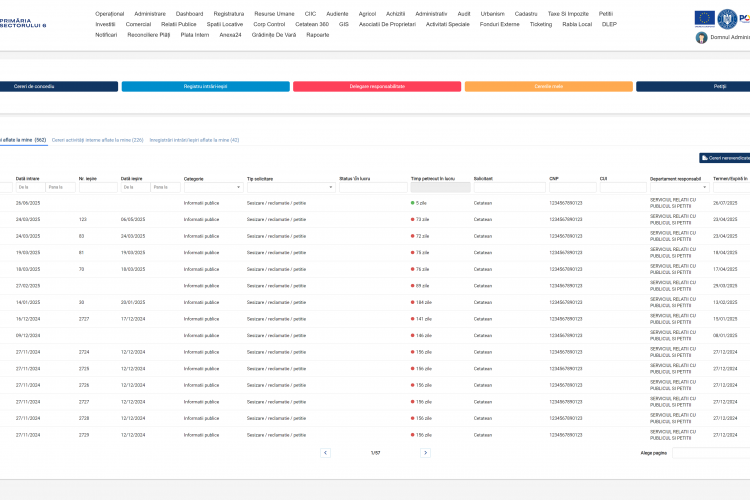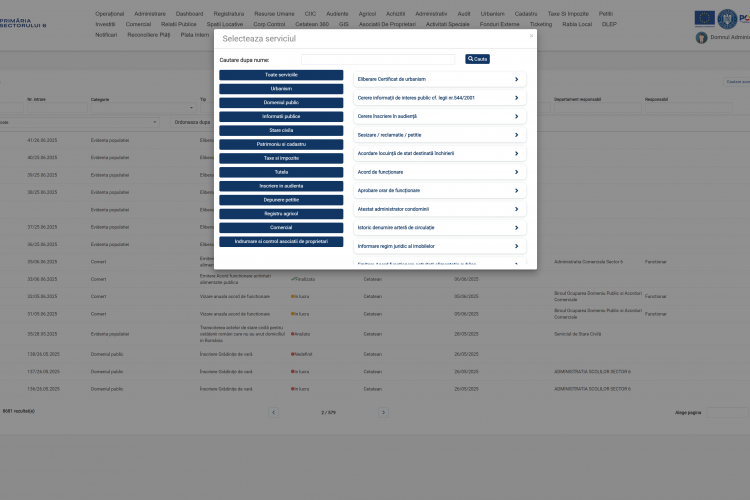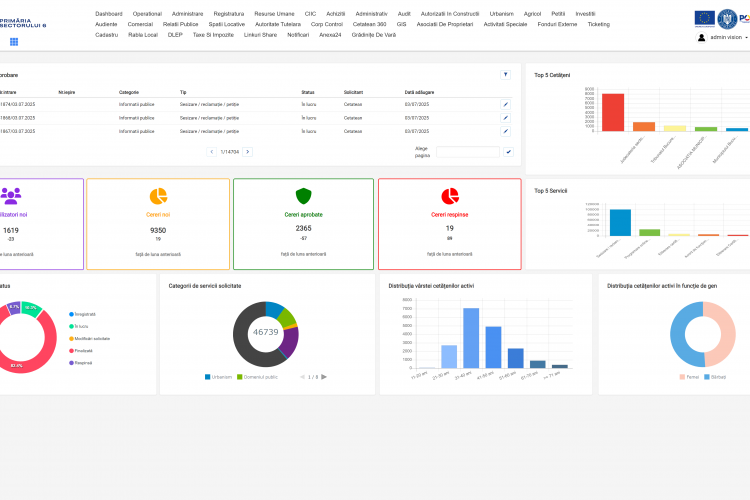Unified Platform for Digital Public Services
The platform improves municipal staff efficiency in handling citizen requests and enhances public access to the services provided by the city hall.
Sector 6 City Hall in Bucharest sought to modernise its public-service delivery by launching the “Paperless City Hall & Strategic Citizen Engagement” initiative. The project introduces an integrated digital platform that streamlines document management, reduces in-person wait times, and enables real-time interaction between citizens and municipal staff.
Initial Challenges
City-hall processes were dominated by paper documents and fragmented systems. Citizens waited in long queues at the One-Stop Desk, while clerks manually registered, routed, and archived files. The lack of a unified platform made it difficult to track document status, enforce deadlines, or provide transparent updates. These inefficiencies slowed service delivery, increased operational costs, and limited citizen engagement in strategic planning.
Key pain points included:
- Manual intake and archival of thousands of documents each month
- Minimal online services, forcing citizens to visit the counter for most requests
- Slow registration and routing, leading to a 90% latency in document processing
- No central feedback loop for monitoring service quality or citizen satisfaction
The Smart Solution
Sector 6 implemented an Integrated Digital Platform that manages end-to-end workflows for incoming and outgoing documents. Each file receives a unique identifier, enabling full lifecycle tracking and audit trails. The solution supports authorised electronic signatures, real-time notifications, and a secure digital archive.
A citizen portal, embedded in the new website (primarie6.ro), allows online self-service for permits, petitions, appointment scheduling, and feedback submission.
Implementation Insights
The project began with an operational analysis to define functional and non-functional requirements for the future platform. Integration points with existing municipal applications were mapped early to guarantee interoperability.
- Stakeholder training – frontline registry staff tested the platform in phased sessions, ensuring hands-on feedback and rapid iteration.
- Phased rollout – analysis, design, development, testing, and launch were scheduled to minimise service disruption.
- Accessibility focus – AI assistance and multilingual interfaces were prioritised to widen digital inclusion.
Results & Impact
The platform is in advanced implementation, with initial metrics and projected targets already demonstrating value.
Quantitative Results:
- 90% faster electronic document registration compared with the previous manual logbook
- 10% reduction in citizen time spent at the One-Stop Desk through online uploads and self-service
- 100% digital archiving of incoming and outgoing records, eliminating paper storage costs
Qualitative Results:
- Positive staff feedback following training and test sessions
- Greater transparency via real-time status notifications to citizens
- Enhanced engagement in strategic-planning consultations through the portal
Lessons Learned & Key Takeaways
Early stakeholder involvement, comprehensive training, and phased integration were critical to user adoption. Defining clear KPIs (e.g., 90% faster registration) aligned technical work with public-service objectives. Finally, embedding accessibility and feedback loops from the outset ensures the platform serves all citizens and scales to other municipal entities.


